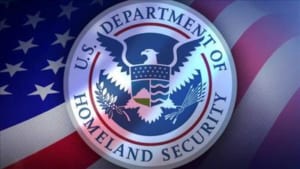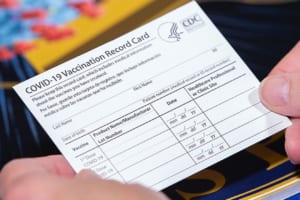A common concern raised by our clients departing the United States to reside abroad is what do they need to do about U.S. taxes. Furthermore, there are several misconceptions and misunderstandings that permeate the American expatriate community about U.S. taxes; especially about filing thresholds and some exclusion amounts. Allow us to provide insights — answers to address these questions and clarify the misconceptions.
U.S. taxes are the financial backbone of the U.S. economy. The tax system is essential to financing the activities of the federal, state and municipal governments including infrastructure, healthcare, education, military and consular services. Indeed, now a cliché, founding father Benjamin Franklin once said, “nothing can be said to be certain, except death and taxes.” Another notable thing about U.S. taxes is that an excerpt is noted right on the last page of one’s U.S. Passport, “All U.S. Citizens working and residing abroad are required to file and report on their worldwide income. Consult IRS Publication 54 …”
Therefore, the answer to what needs to be done about U.S. taxes when moving and residing outside the United States is that U.S. tax filings are still required. All U.S. Citizens and lawful permanent residents residing abroad should prepare and file IRS Form 1040 Individual Income Tax Return on an annual basis. However, in practice, U.S. tax professionals will go by filing requirement thresholds which differ from foreign earning exclusion thresholds. The filing requirement is based on the standard deduction amount (in 2024, single status filers claim $14,600). U.S. Citizens and lawful permanent residents are each entitled to a standard deduction. Accordingly, a U.S. taxpayer should file an individual income tax return when worldwide income exceeds the standard deduction. When in doubt, the best approach in complying with U.S. tax laws is to file an annual tax return.
The Foreign Earned Income Exclusion (“FEIE”) amount can be a benefit for American expatriates that is of particular interest. This exclusion benefit is filed with one’s annual tax filing and documented on Form 2555. In contrast to the standard deduction, the exclusion amount is not automatic. The exclusion amount is updated each tax year and in 2024, single filers can take a FEIE up to $126,500. Following are some facts about the foreign earned income exclusion:
- The FEIE is not automatic. The taxpayer must file Form 2555 with their Form 1040 in order to claim the exclusion. Without claiming the exclusion amount on Form 2555, foreign earnings in excess of the standard deduction may be deemed taxable in the United States.
- The FEIE can be applied to general income categories and cannot be used for passive income (i.e. foreign dividend income, foreign rental income, etc.) sources.
- The FEIE amount is updated annually and published by the IRS.
- Eligibility to take the FEIE must be demonstrated annually by filing Form 2555.
ABOUT ARANCEL CONSULTING
Arancel Consulting is a boutique U.S. Tax and Consultancy firm based in Manila, Philippines. The firm specializes in U.S. Expatriate Tax Compliance, Tax Consultancy, and Business Management Services. The firm partners with Enterline Partners for U.S. immigration referrals and consular services.
ENTERLINE & PARTNERS CONSULTING
Ho Chi Minh City, Vietnam Office
146C7 Nguyen Van Huong St, Thao Dien Ward,
District 2, Thu Duc City
Ho Chi Minh City, Vietnam
Tel: +84 933 301 488
Email: info@enterlinepartners.com
Facebook: Enterline & Partners – Dịch vụ Thị thực và Định cư Hoa Kỳ
YouTube: @EnterlineAndPartnersConsulting
Website: http://enterlinepartners.com
Manila, Philippines Office
LKG Tower 37th Floor
6801 Ayala Avenue
Makati City, Philippines 1226
Tel: +63 917 543 7926
Email: info@enterlinepartners.com
Facebook: Enterline and Partners Philippines
Website: https://enterlinepartners.com/language/en/welcome/
Copyright 2025. This article is for information purposes only and does not constitute legal advice. This article may be changed with or without notice. The opinions expressed in this article are those of Enterline & Partners only.








